Essays are defined as short literary compositions on a particular subject or theme. DPL’s Core Collection of Essays are essential titles that represent the breadth and diversity of our contemporary world.
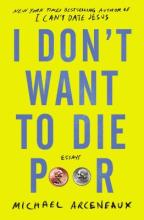
Ever since Oprah Winfrey told the 2007 graduating class of Howard University, 'Don't be afraid,' Michael Arceneaux has been scared to death. You should never do the opposite of what Oprah instructs you to do, but when you don't have her pocket change, how can you not be terrified of the consequences of pursuing your dreams? Michael has never shied away from discussing his struggles with debt, but in I Don't Want to Die Poor, he reveals the extent to which it has an impact on every facet of his life--how he dates; how he seeks medical care (or in some cases, is unable to); how he wrestles with the question of whether or not he should have chosen a more financially secure path; and finally, how he has dealt with his 'dream' turning into an ongoing nightmare as he realizes one bad decision could unravel all that he's earned. I Don't Want to Die Poor is an unforgettable and relatable examination about what it's like leading a life that often feels out of your control.
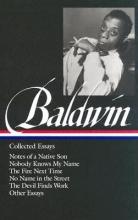
Offers a comprehensive gathering of Baldwin's nonfiction works that articulates issues of race, democracy, and American identity. His landmark collections, Notes of a native son and Nobody knows my name fuse the personal, literary, and the political. The classic, The fire next time, provides an analysis of America's racial divide and No name in the street and The Devil finds work chart is continuing response to the social and political turbulence of his era. Thirty-six additional essays--nine previously uncollected--record insights into the language of Shakespeare, and poetry of Langston Hughes, the music of Earl Hines, and more.

Bell tackles "a wide range of issues, such as race relations; fatherhood; the state of law enforcement today; comedians and superheroes; right-wing politics; left-wing politics; failure; his interracial marriage; white men; his upbringing by very strong-willed, race-conscious, yet ideologically opposite parents; his early days struggling to find his comedic voice, then his later days struggling to find his comedic voice; why he never seemed to fit in with the Black comedy scene--or the white comedy scene; how he was a Black nerd way before that became a thing; how it took his wife and an East Bay lesbian to teach him that racism and sexism often walk hand in hand; and much, much more."

Upon becoming a new mother, Eula Biss addresses a chronic condition of fear: fear of the government, the medical establishment, and what is in children's food, mattresses, medicines, and vaccines. Biss investigates the metaphors and myths surrounding the conception of immunity and its implications for the individual and the social body. As she hears more and more fears about vaccines, Biss researches what they mean for her own child, her immediate community, America, and the world.
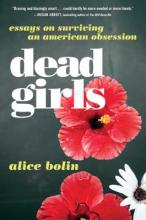
A collection of sharp, poignant essays that expertly blends the personal and political in an exploration of American culture through the lens of our obsession with dead women.

How much of the human experience can fit into 750 words? A lot, it turns out. Since its founding in 1997, Brevity: A Journal of Concise Literary Nonfiction has published hundreds of brief nonfiction essays by writers around the world, each within that strict word count. Over the past 20 years, Brevity has become one of the longest-running and most popular online literary publications, a journal readers regularly return to for insightful essays from skilled writers at every stage of their careers. Featuring examples of nonfiction forms such as memoir, narrative, lyric, braided, hermit crab, and hybrid, The Best of Brevity brings you 84 of the best-loved and most memorable reader favorites, collected in print for the first time. Compressed to their essence, these essays glint with drama, grief, love, and anger, as well as innumerable other lived intensities, resulting in an anthology that is as varied as it is unforgettable, leaving the reader transformed.
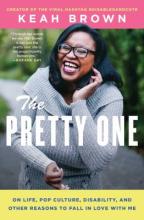
From the disability rights advocate and creator of the #DisabledAndCute viral campaign, a thoughtful, inspiring, and charming collection of essays exploring what it means to be black and disabled in a mostly able-bodied white America. Keah Brown loves herself, but that hadn't always been the case. Born with cerebral palsy, her greatest desire used to be normalcy and refuge from the steady stream of self-hate society strengthened inside her. But after years of introspection and reaching out to others in her community, she has reclaimed herself and changed her perspective. In The Pretty One, Brown gives a contemporary and relatable voice to the disabled -- so often portrayed as mute, weak, or isolated. With clear, fresh, and light-hearted prose, these essays explore everything from her relationship with her able-bodied identical twin (called 'the pretty one' by friends) to navigating romance; her deep affinity for all things pop culture--and her disappointment with the media's distorted view of disability; and her declaration of self-love with the viral hashtag #DisabledAndCute. By 'smashing stigmas, empowering her community, and celebrating herself' (Teen Vogue), Brown and The Pretty One aims to expand the conversation about disability and inspire self-love for people of all backgrounds.

One of the most influential works of this century, The Myth of Sisyphus--featured here in a stand-alone edition--is a crucial exposition of existentialist thought. Influenced by works such as Don Juan and the novels of Kafka, these essays begin with a meditation on suicide--the question of living or not living in a universe devoid of order or meaning. With lyric eloquence, Albert Camus brilliantly posits a way out of despair, reaffirming the value of personal existence, and the possibility of life lived with dignity and authenticity.

A groundbreaking collection of essays by celebrated international writers bears witness to the human cost of fifty years of Israeli occupation of the West Bank and Gaza. Michael Chabon and Ayelet Waldman, two of today's most renowned novelists and essayists, have teamed up with the Israeli NGO Breaking the Silence -- an organization comprised of former Israeli soldiers who served in the occupied territories and saw firsthand the injustice there -- and a host of illustrious writers to tell the stories of the people on the ground in the contested territories. Kingdom of Olives and Ash includes contributions from several of today's most esteemed storytellers including: Colum McCann, Jacqueline Woodson, Colm Toibin, Geraldine Brooks, Dave Eggers, Hari Kunzru, Raja Shehadeh, Mario Vargas Llosa and Assaf Gavron, as well as from editors Chabon and Waldman.

From the author of The Queen of the Night, an essay collection exploring how we form our identities in life, in politics, and in art.

"Ace" delves into the lives of those who identify using the little-known sexual orientation of asexuality and shows what all of us can learn-about desire, identity, culture, and relationships-when we use an asexual lens to see the world.
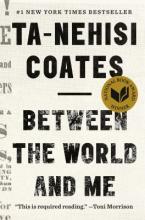
For Ta-Nehisi Coates, history has always been personal. At every stage of his life, he's sought in his explorations of history answers to the mysteries that surrounded him -- most urgently, why he, and other black people he knew, seemed to live in fear. What were they afraid of? In Tremble for My Country, Coates takes readers along on his journey through America's history of race and its contemporary resonances through a series of awakenings -- moments when he discovered some new truth about our long, tangled history of race, whether through his myth-busting professors at Howard University, a trip to a Civil War battlefield with a rogue historian, a journey to Chicago's South Side to visit aging survivors of 20th century America's 'long war on black people,' or a visit with the mother of a beloved friend who was shot down by the police. In his trademark style -- a mix of lyrical personal narrative, reimagined history, essayistic argument, and reportage -- Coates provides readers a thrillingly illuminating new framework for understanding race: its history, our contemporary dilemma, and where we go from here.

With this collection of more than fifty pieces on politics, photography, travel, history, and literature, Teju Cole solidifies his place as one of today's most powerful and original voices. On page after page, deploying prose dense with beauty and ideas, he finds fresh and potent ways to interpret art, people, and historical moments, taking in subjects from Virginia Woolf, Shakespeare, and W. G. Sebald to Instagram, Barack Obama, and Boko Haram.
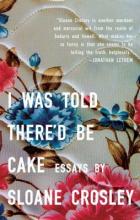
From despoiling an exhibit at the Natural History Museum to provoking the ire of her first boss to siccing the cops on her mysterious neighbor, Crosley can do no right despite the best of intentions--or perhaps because of them. Together, these essays create a startlingly funny and revealing portrait of a complex and utterly recognizable character that's aiming for the stars but hits the ceiling, and the inimitable city that has helped shape who she is.

Charles D'Ambrosio's essay collection Orphans spawned something of a cult following. In the decade since the tiny limited-edition volume sold out its print run, its devotees have pressed it upon their friends, students, and colleagues, only to find themselves begging for their copy's safe return. For anyone familiar with D'Ambrosio's writing, this enthusiasm should come as no surprise. His work is exacting and emotionally generous, often as funny as it is devastating. Loitering gathers those eleven original essays with new and previously uncollected work so that a broader audience might discover one of our great living essayists. No matter his subject - Native American whaling, a Pentecostal "hell house," Mary Kay Letourneau, the work of J. D. Salinger, or, most often, his own family - D'Ambrosio approaches each piece with a singular voice and point of view; each essay, while unique and surprising, is unmistakably his own.

A selection of essays on writing and reading by the master short-fiction writer Lydia Davis.

The first nonfiction work by one of the most distinctive prose stylists of our era, Joan Didion's Slouching Towards Bethlehem remains, decades after its first publication, the essential portrait of America—particularly California—in the sixties. It focuses on such subjects as John Wayne and Howard Hughes, growing up a girl in California, ruminating on the nature of good and evil in a Death Valley motel room, and, especially, the essence of San Francisco's Haight-Ashbury, the heart of the counterculture.

A stunning collection of personal observations that uses images of the American West to probe larger concerns in lyrical, evocative prose that is a true celebration of the region.
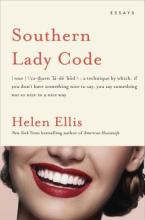
A fiercely funny collection of essays on marriage and manners, thank you notes and three-ways, ghosts, gunshots, gynecology, and the Calgon-scented, onion-dipped, monogrammed art of living as a Southern Lady.

With her disarming, intimate, completely accessible voice, and dry sense of humor, Nora Ephron shares with us her ups and downs in I Feel Bad About My Neck, a candid, hilarious look at women who are getting older and dealing with the tribulations of maintenance, menopause, empty nests, and life itself.

A fiercely personal and startlingly universal essay collection about the mysteries of gender and desire, of identity and class, of the stories we tell and the places we call home.
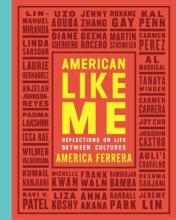
A vibrant and varied collection of first person accounts from prominent figures about the experience of growing up between cultures. America Ferrera has always felt wholly American, and yet, her identity is inextricably linked to her parents' homeland and Honduran culture. Speaking Spanish at home, having Saturday-morning-salsa-dance-parties in the kitchen, and eating tamales alongside apple pie at Christmas never seemed at odds with her American identity. Still, she yearned to see that identity reflected in the larger American narrative. Now, in American Like Me, America invites thirty-one of her friends, peers, and heroes to share their stories about life between cultures. We know them as actors, comedians, athletes, politicians, artists, and writers. However, they are also immigrants, children or grandchildren of immigrants, indigenous people, or people who otherwise grew up with deep and personal connections to more than one culture.
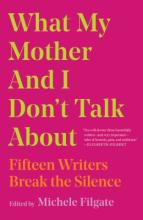
From a critically acclaimed group of writers comes an essay collection about what they wish they could share with their mothers--the hilarious, the painful, the awkward, and the downright messy. Raw and poignant, this is an anthology that will resonate with anyone who's ever had a mother.
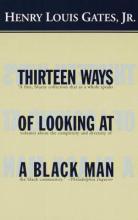
Collection of narratives about African-American men who rose from modest beginnings to achieve positions of prominence in a variety of fields, including James Baldwin, Colin Powell, Harry Belafonte, and Louis Farrakhan.
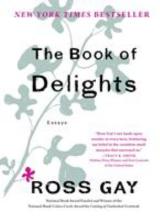
Author Ross Gay spent a year writing almost-daily essays about the things, large and small, that delight him.
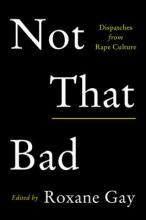
In this valuable and revealing anthology, cultural critic and bestselling author Roxane Gay collects original and previously published pieces that address what it means to live in a world where women have to measure the harassment, violence, and aggression they face, and where they are "routinely second-guessed, blown off, discredited, denigrated, besmirched, belittled, patronized, mocked, shamed, gaslit, insulted, bullied" for speaking out. Highlighting the stories of well-known actors, writers, and experts, as well as new voices being published for the first time, Not That Bad covers a wide range of topics and experiences, from an exploration of the rape epidemic embedded in the refugee crisis to first-person accounts of child molestation and street harassment. Often deeply personal and always unflinchingly honest, this provocative collection both reflects the world we live in and offers a call to arms insisting that "not that bad" must no longer be good enough.
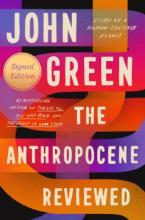
The Anthropocene is the current geological age, in which human activity has profoundly shaped the planet and its biodiversity. In this remarkable symphony of essays adapted and expanded from his groundbreaking podcast, John Green reviews different facets of the human-centered planet-from the QWERTY keyboard and Staphylococcus aureus to the Taco Bell breakfast menu-on a five-star scale. John Green's gift for storytelling shines throughout this artfully curated collection that includes both beloved essays and all-new pieces exclusive to the book.

A former poet laureate presents a new collection of essays delivering an unexpected view from the vantage point of very old age.

19 Arab women journalists speak out about what it's like to report on their changing homelands in this first-of-its-kind essay collection, with a foreword by CNN Chief International Correspondent Christiane Amanpour International media coverage of the Arab world and its many complex, interconnected conflicts is dominated by the work of Western correspondents, many of whom are white and male--meaning we see only one side of the story. But a growing number of intrepid Arab women, whose access to and understanding of their subjects are vastly different than their Western counterparts, are working tirelessly to shape more nuanced narratives about their homelands through their work as reporters and photojournalists. Their voices have rarely been heard on the international stage--until now. In Our Women on the Ground, nineteen of these women tell us, in their own words, about what it's like to report on conflicts that are (quite literally) close to home.
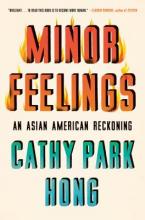
Asian Americans inhabit a purgatorial status: neither white enough nor Black enough, unmentioned in most conversations about racial identity. In the popular imagination, Asian Americans are all high-achieving professionals. But in reality, this is the most economically divided group in the country, a tenuous alliance of people with roots from South Asia to East Asia to the Pacific Islands, from tech millionaires to service industry laborers. How do we speak honestly about the Asian American condition--if such a thing exists? Poet and essayist Cathy Park Hong fearlessly and provocatively confronts this thorny subject, blending memoir, cultural criticism, and history to expose the truth of racialized consciousness in America.
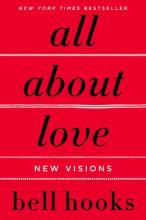
Presenting radical new ways to think about love, the author examines the role of love in our personal and professional lives and how it can be used to end struggles between individuals, communities, and societies.

The author draws on her travels and homestead life in the Colorado Rockies in an essay collection on her ties to nature that explores the symbiotic relationship between humans and the earth.

With heartfelt candor and her usual side-splitting bite, humorist, essayist, and blogger at bitchesgottaeat.com Samantha Irby captures powerful emotional truths while chronicling the disaster that has been her life. An ill-fated pilgrimage and romantic vacation to Nashville to scatter her estranged father's ashes, awkward sexual encounters, a Bachelorette application gone awry, and more-- sometimes you just have to laugh, even when your life is a dumpster fire.
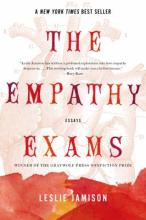
A collection of essays explores empathy, using topics ranging from street violence and incarceration to reality television and literary sentimentality to ask questions about people's understanding of and relationships with others.

Two powerful phenomena are simultaneously unfolding on Earth: the rise of the climate movement and the rise of women and girls. The People's Climate March and the Women's March. School strikes for climate and the #MeToo movement. Rebellions against extinction and declarations that time's up. More than concurrent, the two trends are deeply connected. From sinking islands to drought-ridden savannas, the global warming crisis places an outsized burden on women, largely because of gender inequalities. In many parts of the world, women hold traditional roles as the primary caregivers in families and communities, and as the main providers of food and fuel, they are more vulnerable when flooding and drought occur; the U.N. estimates 80% of those who have been displaced by climate change are women. Women are on the front line of the climate-change battle, and are uniquely situated to be agents of change--to find ways to mitigate the causes of global warming and adapt to its impacts on the ground.

In Is Everyone Hanging Out Without Me?, Mindy invites readers on a tour of her life and her unscientific observations on romance, friendship, and Hollywood, with several conveniently placed stopping points for you to run errands and make phone calls. Mindy Kaling really is just a Girl Next Door - not so much literally anywhere in the continental United States, but definitely if you live in India or Sri Lanka.
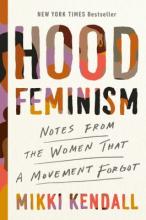
In this collection of essays, Kendall takes aim at the legitimacy of the modern feminist movement. She argues that it has chronically failed to address the needs of all but a few women. Prominent white feminists broadly suffer from their own myopia with regard to how things like race, class, sexual orientation, and ability intersect with gender. How can we stand in solidarity as a movement, Kendall asks, when there is the distinct likelihood that some women are oppressing others?

An inspired weaving of indigenous knowledge, plant science, and personal narrative from a distinguished professor of science and a Native American whose previous book, Gathering Moss, was awarded the John Burroughs Medal for outstanding nature writing. As a botanist and professor of plant ecology, Robin Wall Kimmerer has spent a career learning how to ask questions of nature using the tools of science. As a Potawatomi woman, she learned from elders, family, and history that the Potawatomi, as well as a majority of other cultures indigenous to this land, consider plants and animals to be our oldest teachers. In Braiding Sweetgrass, Kimmerer brings these two lenses of knowing together to reveal what it means to see humans as "the younger brothers of creation."
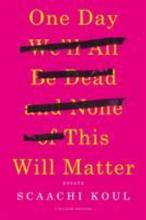
Scaachi Koul deploys her razor sharp humor to share all the fears, outrages, and mortifying moments of her life. She learned from an early age what made her miserable, and for Scaachi anything can be cause for despair. Whether it's a shopping trip gone awry; enduring awkward conversations with her bikini waxer; overcoming her fear of flying while vacationing halfway around the world; dealing with internet trolls, or navigating the fears and anxieties of her parents. Alongside these personal stories are pointed observations about life as a woman of color, where every aspect of her appearance is open for critique, derision, or outright scorn. Where strict gender rules bind in both Western and Indian cultures, leaving little room for a woman not solely focused on marriage and children to have a career (and a life) for herself.
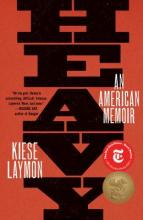
Laymom writes about the physical manifestations of violence, grief, trauma, and abuse on his own body, [examining] his own eating disorder and gambling addiction as well as similar issues that run throughout his family. Through self-exploration, storytelling, and honest conversation with family and friends, Heavy seeks to bring what has been hidden into the light and to reckon with all of its myriad sources, from the most intimate--a mother-child relationship--to the most universal--a society that has undervalued and abused black bodies for centuries.
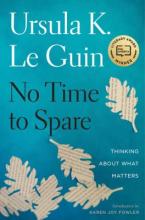
A collection of thoughts--always adroit, often acerbic--on aging, belief, the state of literature, and the state of the nation. Ursula K. Le Guin has taken readers to imaginary worlds for decades. Now she's in the last great frontier of life, old age, and exploring new literary territory: the blog, a forum where her voice -- sharp, witty, as compassionate as it is critical -- shines. No Time to Spare collects the best of Ursula's blog, presenting perfectly crystallized dispatches on what matters to her now, her concerns with this world, and her wonder at it. On the absurdity of denying your age, she says, "If I'm ninety and believe I'm forty-five, I'm headed for a very bad time trying to get out of the bathtub." On cultural perceptions of fantasy: "The direction of escape is toward freedom. So what is 'escapism' an accusation of? " On her new cat: "He still won't sit on a lap."

First published in 1949, A Sand County Almanac combines some of the finest nature writing since Thoreau with an outspoken and highly ethical regard for America's relationship to the land.

Presents a lyrical meditation on religion and science as they relate to the human yearning for permanence and certainty in spite of discoveries that prove the world's impermanent and uncertain nature.

More than 75 essays trace the development of the literary form from classical examples to contemporary English and American writers.

The first decades of the twenty-first century have witnessed a blossoming of creative nonfiction. In this extraordinary collection, Phillip Lopate gathers essays by forty-seven of America's best contemporary writers, mingling long-established eminences with newer voices and making room for a wide variety of perspectives and styles. The Contemporary American Essay is a monument to a remarkably adaptable form and a treat for anyone who loves fantastic writing.
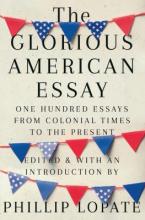
A monumental, canon-defining anthology of four centuries of American essays, from Cotton Mather and Benjamin Franklin to David Foster Wallace and Zadie Smith. Many of the essays Phillip Lopate has gathered here address themselves--sometimes critically--to American values, but even in those that don't, one can detect a subtext about being American. The Founding Fathers and early American writers self-consciously struggle to establish a recognizable national culture. The shining stars of the mid-nineteenth-century American Renaissance no longer lack confidence but face new reckonings with the oppression of blacks and women. The New World tradition of nature writing runs from Audubon and Thoreau and John Muir to Rachel Carson and Annie Dillard. Marginalized groups in all periods use the essay to assert or to complicate notions of identity.
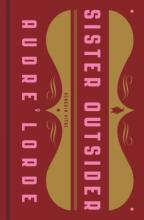
A collection of fifteen essays written between 1976 and 1984 gives clear voice to Audre Lorde's literary and philosophical personae. These essays explore and illuminate the roots of Lorde's intellectual development and her deep-seated and longstanding concerns about ways of increasing empowerment among minority women writers and the absolute necessity to explicate the concept of difference—difference according to sex, race, and economic status. The title Sister Outsider finds its source in her poetry collection The Black Unicorn (1978). These poems and the essays in Sister Outsider stress Lorde's oft-stated theme of continuity, particularly of the geographical and intellectual link between Dahomey, Africa, and her emerging self.

Structured around the forty questions Luiselli translates and asks undocumented Latin-American children facing deportation, Tell Me How It Ends (an expansion of her 2016 Freeman's essay of the same name) humanizes these young migrants and highlights the contradiction of the idea of America as a fiction for immigrants with the reality of racism and fear--both here and back home.
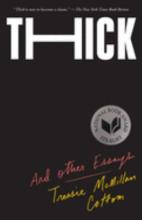
In these eight piercing explorations on beauty, media, money, and more, Tressie McMillan Cottom, award-winning professor and acclaimed author of Lower Ed, embraces her venerated role as a purveyor of wit, wisdom, and Black Twitter snark about all that is right and much that is wrong with this thing we call society. Ideas and identity fuse effortlessly in this vibrant collection that on bookshelves is just as at home alongside Rebecca Solnit and bell hooks as it is beside Jeff Chang and Janet Mock. It also fills an important void on those very shelves: a modern black American feminist voice waxing poetic on self and society, serving up a healthy portion of clever prose and southern aphorisms as she covers everything from Saturday Night Live, LinkedIn, and BBQ Becky to sexual violence, infant mortality, and Trump rallies. Thick speaks fearlessly to a range of topics and is far more genre-bending than a typical compendium of personal essays.
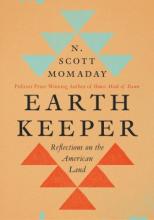
In Earth Keeper: Reflections on an American Land, Momaday reflects on his native ground and its influence on his people. "When I think about my life and the lives of my ancestors, I am inevitably led to the conviction that I, and they, belong to the American land. This is a declaration of belonging. And it is an offering to the earth." he writes. Earth Keeper is a story of attachment, rooted in oral tradition. Momaday recalls stories of his childhood that have been passed down through generations, stories that reveal a profound and sacred connection to the American landscape and a reverence for the natural world. In this moving work, he offers an homage and a warning. Momaday reminds us that the Earth is a sacred place of wonder and beauty; a source of strength and healing that must be protected before it's too late. As he so eloquently yet simply reminds us, we must all be keepers of the Earth.

Arguably the most celebrated and revered writer of our time now gives us a new nonfiction collection--a rich gathering of her essays, speeches, and meditations on society, culture, and art, spanning four decades. The Source of Self-Regard is brimming with all the elegance of mind and style, the literary prowess and moral compass that are Toni Morrison's inimitable hallmark. It is divided into three parts: the first is introduced by a powerful prayer for the dead of 9/11; the second by a searching meditation on Martin Luther King Jr., and the last by a heart-wrenching eulogy for James Baldwin. In the writings and speeches included here, Morrison takes on contested social issues: the foreigner, female empowerment, the press, money, "black matter(s)," and human rights. She looks at enduring matters of culture: the role of the artist in society, the literary imagination, the Afro-American presence in American literature, and in her Nobel lecture, the power of language itself. And here too is piercing commentary on her own work (including The Bluest Eye, Sula, Tar Baby, Jazz, Beloved, and Paradise) and that of others, among them, painter and collagist Romare Bearden, author Toni Cade Bambara, and theater director Peter Sellars.

A lyrical, philosophical, and often explicit exploration of personal suffering and the limitations of vision and love, as refracted through the color blue.
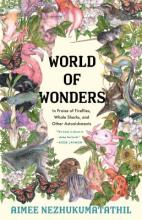
From beloved, award-winning poet Aimee Nezhukumatathil comes a debut work of nonfiction -- a collection of essays about the natural world, and the way its inhabitants can teach, support, and inspire us.

Pulitzer Prize-winning author Viet Thanh Nguyen, himself a refugee, brings together a host of prominent refugee writers from around the world to explore and illuminate their experiences. Poignant and insightful, this collection of essays reveals moments of uncertainty, resilience int he face of trauma, and a reimagining of identity. The Displaced is a powerful look at what it means to be forced to leave home and find a place of refuge.

Fifty five unforgettable essays by the finest American writers of the twentieth century.

Sixteen essays about individual animals, including wild (woolly mammoth, rhinoceros, starling, crocodile, gorilla, lion) and domesticated (housecat, racing pigeons, elephant, horses, goats), named and made famous by humans.

Claudia Rankine's bold book recounts mounting racial aggressions in ongoing encounters in twenty-first-century daily life and in the media. Some of these encounters are slights, seeming slips of the tongue, and some are intentional offensives in the classroom, at the supermarket, at home, on the tennis court with Serena Williams and the soccer field with Zinedine Zidane, online, on TV--everywhere, all the time. The accumulative stresses come to bear on a person's ability to speak, perform, and stay alive. Our addressability is tied to the state of our belonging, Rankine argues, as are our assumptions and expectations of citizenship. In essay, image, and poetry, Citizen is a powerful testament to the individual and collective effects of racism in our contemporary, often named 'post-race' society.

Growing up in Alabama, Renkl was a devoted reader, an explorer of riverbeds and red-dirt roads, and a fiercely loved daughter. Here, in brief essays, she traces a tender and honest portrait of her complicated parents--her exuberant, creative mother; her steady, supportive father--and of the bittersweet moments that accompany a child's transition to caregiver.

A hilarious and affecting essay collection about race, gender, and pop culture from celebrated stand-up comedian and WNYC podcaster Phoebe Robinson.

David Sedaris' move to Paris from New York inspired these hilarious pieces, including the title essay, about his attempts to learn French from a sadistic teacher who declares that every day spent with you is like having a caesarean section. His family is another inspiration. You Can't Kill the Rooster is a portrait of his brother, who talks incessant hip-hop slang to his bewildered father. And no one hones a finer fury in response to such modern annoyances as restaurant meals presented in ludicrous towers of food and cashiers with six-inch fingernails.
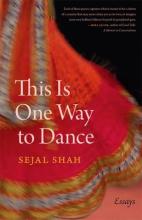
In the linked essays that make up her debut collection, ... Sejal Shah explores culture, language, family, and place. Throughout the collection, [she] reflects on what it means to make oneself visible and legible through writing in a country that struggles with race, and maps her identity as an American, South Asian American, writer of color, and feminist ... Her memoir in essays emerges as [she] wrestles with her experiences growing up and living in western New York, an area of stark racial and economic segregation, as the daughter of Gujarati immigrants from India and Kenya.
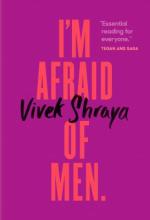
A powerful meditation on the damaging effects of masculinity from a trans girl--a writer with celebrated indie roots and a knack for dismantling assumptions and challenging the status quo. Toxic masculinity takes many insidious forms, from misogyny and sexual harassment to homophobia, transphobia, and bullying. Vivek Shraya has firsthand experience with nearly all of them. As a boy, Vivek exhibited "feminine" qualities. The men in her life immediately and violently disapproved. They taught her to fear the word girl by turning it into a weapon used to hurt her. They taught her to hate her femininity, to destroy the best parts of herself. In order to survive, Vivek had to learn to convincingly perform masculinity. As a girl, she's still afraid. Having spent years undoing the damage and salvaging her lost girlhood, she is haunted by the violence of men, seldom dressing the way she wants in public. As a result she is often still perceived as male, stirring feelings of guilt and self-doubt: Am I not feminine enough? Is this my fault for striving to be the perfect man and excelling at it? I'm Afraid of Men is a culmination of the years Vivek spent observing men and creating her own version of manhood. Through deeply personal reflection, she offers a rare and multifaceted perspective on gender and a hopeful reimagining of masculinity at a time when it's needed more than ever.

Presents essays by first- and second-generation immigrant writers on the realities of immigration, multiculturalism, and marginalization in an increasingly divided America. From Trump's proposed border wall and travel ban to the marching of White Supremacists in Charlottesville, America is consumed by tensions over immigration and the question of which bodies are welcome. In this much-anticipated follow-up to the bestselling UK edition, hailed by Zadie Smith as "lively and vital," editors Nikesh Shukla and Chimene Suleyman hand the microphone to an incredible range of writers whose humanity and right to be here is under attack.

Deeply personal and powerfully moving, a short and timely series of reflective essays by one of the most clear-sighted and essential writers of our time. Written during the early months of lockdown, Intimations explores ideas and questions prompted by an unprecedented situation. What does it mean to submit to a new reality--or to resist it? How do we compare relative sufferings? What is the relationship between time and work? In our isolation, what do other people mean to us? How do we think about them? What is the ratio of contempt to compassion in a crisis? When an unfamiliar world arrives, what does it reveal about the world that came before it? Suffused with a profound intimacy and tenderness in response to these extraordinary times, Intimations is a slim, suggestive volume with a wide scope, in which Zadie Smith clears a generous space for thought, open enough for each reader to reflect on what has happened--and what should come next.
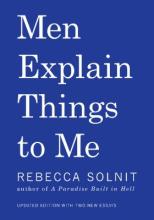
Rebecca Solnit takes on what often goes wrong in conversations between men and women. She writes about men who wrongly assume they know things and wrongly assume women don't, about why this arises, and how this aspect of the gender wars works, airing some of her own hilariously awful encounters. She ends on a serious note--because the ultimate problem is the silencing of women who have something to say, including those saying things like, "He's trying to kill me!" This books features that now classic essay with six perfect complement, including an examination of the great feminist writer Virginia Woolf's embrace of mystery, of not knowing, of doubt and ambiguity, a highly original inquiry into marriage equality, and a terrifying survey of the scope of contemporary violence against women.
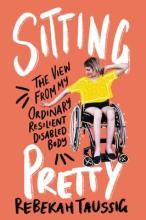
From disability advocate with a PhD in disability studies and creative nonfiction, and creator of the Instagram account @ sitting pretty, an essay collection based on a lifetime of experiences in a paralyzed body, tackling themes of identity, accessibility, bodies, and representation.
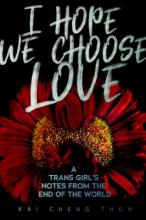
What can we hope for at the end of the world? What can we trust in when community has broken our hearts? What would it mean to pursue justice without violence? How can we love in the absence of faith? In a heartbreaking yet hopeful collection of personal essays and prose poems, blending the confessional, political, and literary, acclaimed poet and essayist Kai Cheng Thom dives deep into the questions that haunt social movements today. With the author's characteristic eloquence and honesty, I Hope We Choose Love proposes heartfelt solutions on the topics of violence, complicity, family, vengeance, and forgiveness. Taking its cues from contemporary thought leaders in the transformative justice movement such as adrienne maree brown and Leah Lakshmi Piepzna-Samarasinha, this provocative book is a call for nuance in a time of political polarization, for healing in a time of justice, and for love in an apocalypse.
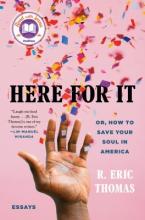
R. Eric Thomas didn't know he was different until the world told him so. Everywhere he went--whether it was his rich, mostly white, suburban high school, his conservative black church, or his Ivy League college in a big city--he found himself on the outside looking in. In essays by turns hysterical and heartfelt, Eric redefines what it means to be an "other" through the lens of his own life experience. He explores the two worlds of his childhood: the barren urban landscape where his parents' house was an anomalous bright spot, and the verdant school they sent him to in white suburbia. He writes about struggling to reconcile his Christian identity with his sexuality, about the exhaustion of code-switching in college, accidentally getting famous on the internet (for the wrong reason), and the surreal experience of covering the 2016 election as well as the seismic change that came thereafter. Ultimately, Eric seeks the answer to the ever more relevant question: Is the future worth it? Why do we bother when everything seems to be getting worse? As the world continues to shift in unpredictable ways, Eric finds the answers to these questions by re-envisioning what "normal" means, and in the powerful alchemy that occurs when you at last place yourself at the center of your own story.

What does it mean to be non-binary in the 21st century? Our gender identity is impacted by our personal histories; the cultures, communities, and countries we are born into; and the places we go and the people we meet. But the representation of contemporary non-binary identities has been limited, until now. Pushing the narrative around non-binary identities further than ever before, this powerful collection of essays represents the breadth of non-binary lives, across the boundaries of race, class, age, sexuality, faith, and more. Leading non-binary people share stories of their intersecting lives; how it feels to be non-binary and neurodiverse, the challenges of being a non-binary pregnant person, what it means to be non-binary within the Quaker community, and the joy of reaching gender euphoria. This thought-provoking anthology shows that there is no right or wrong way to be non-binary.
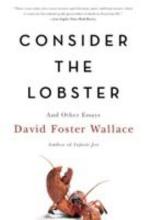
For this collection, Wallace immerses himself in the three-ring circus that is the presidential race in order to document one of the most vicious campaigns in recent history. Later he strolls from booth to booth at a lobster festival in Maine and risks life and limb to get to the bottom of the lobster question. Then he wheedles his way into an L.A. radio studio, armed with tubs of chicken, to get the behind-the-scenes view of a conservative talk show featuring a host with an unnatural penchant for clothing that looks good only on the radio. Do lobsters feel pain? Did Franz Kafka have a sick sense of humor? What is John Updike's deal anyway? And who won the Adult Video News' Female Performer of the Year Award the same year Gwyneth Paltrow won her Oscar? Wallace answers these questions and more.

Schizophrenia is not a single unifying diagnosis, and Esmé Weijun Wang writes not just to her fellow members of the 'collected schizophrenias' but to those who wish to understand it as well. Opening with the journey toward her diagnosis of schizoaffective disorder, Wang discusses the medical community's own disagreement about labels and procedures for diagnosing those with mental illness, and then follows an arc that examines the manifestations of schizophrenia in her life. In essays that range from using fashion to present as high-functioning to the depths of a rare form of psychosis, and from the failures of the higher education system and the dangers of institutionalization to the complexity of compounding factors such as PTSD and Lyme disease, Wang's analytical eye, honed as a former lab researcher at Stanford, allows her to balance research with personal narrative.

Ward takes James Baldwin's 1963 examination of race in America, The Fire Next Time, as a jumping off point for this ... collection of essays and poems about race from ... voices of her generation and our time.
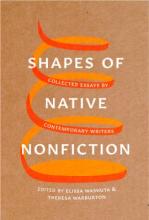
For many the phrase "Native nonfiction" inspires thoughts of the past, of timeless oral history transcriptions and dry 19th century autobiographies. In Shapes of Native Nonfiction, Washuta and Warburton explode this perspective by showcasing 22 contemporary Native writers and their provocative approaches to form. While exploring familiar legacies of personal and collective trauma and violence, these writers push, pull and break the conventional essay structure to overhaul the dominant cultural narrative that romanticize Native lives, yet deny Native emotional response. Organized into four sections inspired by different aspects of and strategies for basket weaving (Technique, Coiling, Plaiting, Twining) the essays presented here demonstrate how Native writers manipulate the shape of creative nonfiction to offer incisive observations, critiques and commentary on our political, social and cultural world. The result is an engaging anthology that introduces a variety of audiences to the true range of Native nonfiction work.
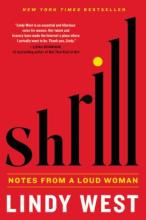
With inimitable good humor, vulnerability, and boundless charm, Lindy boldly shares how to survive in a world where not all stories are created equal and not all bodies are treated with equal respect, and how to weather hatred, loneliness, harassment, and loss--and walk away laughing. Shrill provocatively dissects what it means to become self-aware the hard way, to go from wanting to be silent and invisible to earning a living defending the silenced in all caps.
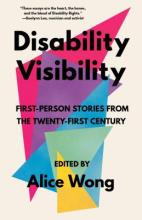
A groundbreaking collection of first-person writing on the joys and challenges of the modern disability experience: Disability Visibility brings together the voices of activists, authors, lawyers, politicians, artists, and everyday people whose daily lives are, in the words of playwright Neil Marcus, "an art . . . an ingenious way to live." According to the last census, one in five people in the United States lives with a disability. Some are visible, some are hidden--but all are underrepresented in media and popular culture. Now, just in time for the thirtieth anniversary of the Americans with Disabilities Act, activist Alice Wong brings together an urgent, galvanizing collection of personal essays by contemporary disabled writers.